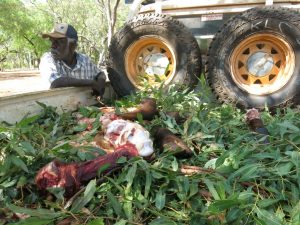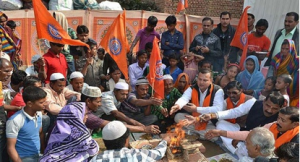Friends of Deakin Anthropology, you may be interested in this event convened by our colleagues at the University of Melbourne Anthropology Seminar Series:
FRESH CONTACT: YOUTH, GHOSTS AND ATMOSPHERE IN INDIA
Friday, 2 March, 3:30 – 5:00pm John Medley Building Linkway (level 4)
Dr Jane Dyson, University of Melbourne
I use long-term research in an Indian village to examine how a generation of young men re-evaluate their local environment following a period of migration. I develop Karl Mannheim’s notion of ‘fresh contact’ to argue that young men aged between 25 and 34 who have lived outside their home re-appraise their village economically, physically and spiritually when they return home, with particular emphasis on how young people re- engage with ghosts and the problem of spirit possession. I highlight the spatial nature of ‘fresh contact’, drawing attention especially to young men’s focus on developing a good ‘mahaul’ – a Hindi word meaning ‘atmosphere’. I also examine how earlier experiences inform the actions of a relatively ‘old’ set of youth aged 25-34, highlighting the temporal nature of fresh contact. My research highlights the value of examining young people’s histories and undertaking long-term ethnographic research.
Biography
Dr Jane Dyson is a Senior Lecturer in the School of Geography, University of Melbourne. She has worked for 15 years in the Indian Himalayas, examining issues around gender, work and social transformation with a focus on children and young people. Her research has been published in a book, Working Childhoods: Youth, Agency and the Environment in India (Cambridge University Press, 2015), and in journals including American Ethnologist, Economy and Society, and JRAI.
To get notices for events related to Anthropology at the University of Melbourne:
https://lists.unimelb.edu.au/info/friendsofanthropology




